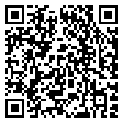2024 年第 1 期(总第 13 期)
145
【编译:陈正兴】
【责任编辑:严瑾怡】
International Affairs,Vol.99,No.5,2023
1. 制造战争?俄罗斯方有关乌克兰的信息(Fabricating a war? Russian
(dis)information on Ukraine)
Elisabeth Johansson-Nogués,巴塞罗那国际研究学院副教授
Elena Şimanschi, 巴塞罗那自治大学政治学、公共政策和国际关系专业博士生
【摘要】战争宣传自古以来就是战争贩子重视的一部分,因此,俄罗斯入侵乌克兰之前且在之后受到
俄罗斯国家控制媒体传播的宣传也就不足为奇了。俄罗斯的(虚假)信息宣传运动的更不寻常之处在
于,有关冲突的叙述是大量歪曲叙述或完全虚构的。本文探讨了俄罗斯在入侵乌克兰的背景下操纵国
内受众信息的内容和技术。我们还研究了冲突前 12 个月内公众对俄罗斯境内战争持续强劲支持的基
础,尽管这些支持大多是捏造的(虚假)信息。依靠政治心理学和传播理论,我们解释了情感和联想
记忆如何在俄罗斯公众对战争的持续认可中发挥了重要作用。研究结果表明,在缺乏对比和独立验证
的信息的情况下,有关乌克兰的即插即用且华而不实的媒体包的数量、频率和情感强度已经取代和扭
曲了俄罗斯普通人的联合社会监控过程。
【原文】Propaganda has been an age-old part of warmongering. It is thus no surprise that the Russian invasion
of Ukraine was preceded by, and continues to be fuelled by, propaganda transmitted by state-controlled
Russian media. What is more unusual about the Russian (dis)information campaigns is the sheer volume of
distorted narratives or complete fictional accounts about the conflict. This article explores the content and
technologies of Russian information manipulation of domestic audiences in the context of the invasion of
Ukraine. We also examine the bases for the sustained robust public support for the war within Russia during
the first 12 months of the conflict, despite being based on mostly fabricated (dis)information. Relying on
political psychology and communication theory we explain how emotions and associative memories have
played an important role in the Russian public's sustained approval to the war. Our findings point to that in the
absence of contrasted and independently-verified information, the volume, frequency, emotional intensity of
slick, plug-and-play media packages on Ukraine have acted to displace and distort the average Russian's
associative social monitoring processes.
2. 傲慢平衡:古典现实主义、自欺欺人和普京对乌克兰的战争(Hubris balancing:
classical realism, self-deception and Putin's war against Ukraine)
Ryuta Ito,广岛大学教授



